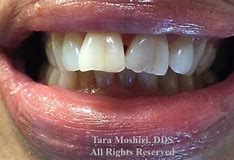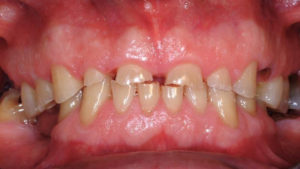Treatment for Clenching and Grinding your Teeth
The habit of clenching, grinding or gnashing your teeth against each other is known as Bruxism. This happens either when you’re awake (awake bruxism) or unconsciously during sleep (sleep bruxism).
People often grind or clench their teeth because of stress or anxiety. Younger children tend to clench and grind their teeth but many grow out of this as they age. Bruxism can be associated with some mental health and medical disorders, such as Parkinson’s disease, dementia, gastroesophageal reflux disorder (GERD), epilepsy, night terrors, sleep-related disorders such as sleep apnea, and attention-deficit/hyperactivity disorder (ADHD). Bruxism can also be a side effect of certain medications. This habit is prevalent in people who have aggressive/competitive personalities and tends to run in families.
Bruxism leads to many dental and health complications that may be noticed initially and may become more of a problem as the habit continues.
Short Term Symptoms of Bruxism:
The initial effects of clenching and grinding may be ignored as nothing serious. The following symptoms need to be treated as they continue:
- Sleep disruption for yourself and partner
- Overall teeth sensitivity
- Teeth are chipping and cracks may develop
- Mild headache
- Pain in the facial bones
- Ear congestion and sensitivity
- Swollen or receding gums
- Restricted jaw movements
Long-Term Symptoms of Bruxism:
If left untreated for a long time, long term and more drastic symptoms will occur such as:
- A severe headache or migraine
- Overall pain in teeth and gums
- Tight muscles near the jaw
- The clicking of jaw joints
- Pain in jaw joints and muscles
- Erosion of enamel into inner, more sensitive layers of tooth
- Breaking of teeth and loss of teeth
- Gum recession and tooth mobility
- Bite problems and teeth shifting position
- Jaw malalignment
Treatments for Clenching and Grinding:
Bruxism can be treated with mouth guards, medication, and therapy.
Mouth guards/night guards/splints are custom made dental appliances designed to protect teeth from the effects of clenching and grinding. This prevents enamel erosion and damage to your teeth, gums, and bite. Wearing a mouth guard while sleeping also helps to relax and protect your jaw muscles. Headaches, jaw joint and muscle symptoms will be diminished with such an appliance. Mouth guards can be worn throughout the day and night. There are different kinds of appliances that can be made. Your dentist will recommend the appropriate mouth guard based on your symptoms and side effects of bruxism. Although mouth guards will not necessarily stop the habit of bruxism, they will greatly alleviate the effects.
Your dentist or doctor may also recommend some medication to treat bruxism. Muscle relaxants before bedtime, medication for stress and anxiety, and of course pain medications can be effectively prescribed for bruxism. Botox injections can also be used to relax the associated muscles.
Alternative therapy is also successful treatment for bruxism. Yoga and meditation may help to reduce mental stress and thereby decrease clenching and grinding. Regular massage and physiotherapy sessions will relax and treat jaw and head muscles and help to reduce tension and stress. Acupuncture and chiropractic therapy is also known to treat the jaw joints and muscles. Similarily, ice and heat therapy will also alleviate the side effects of clenching and grinding.
If you have any of these related symptoms and are concerned about Bruxism, contact your dentist for a consultation appointment before any long term effects result.


